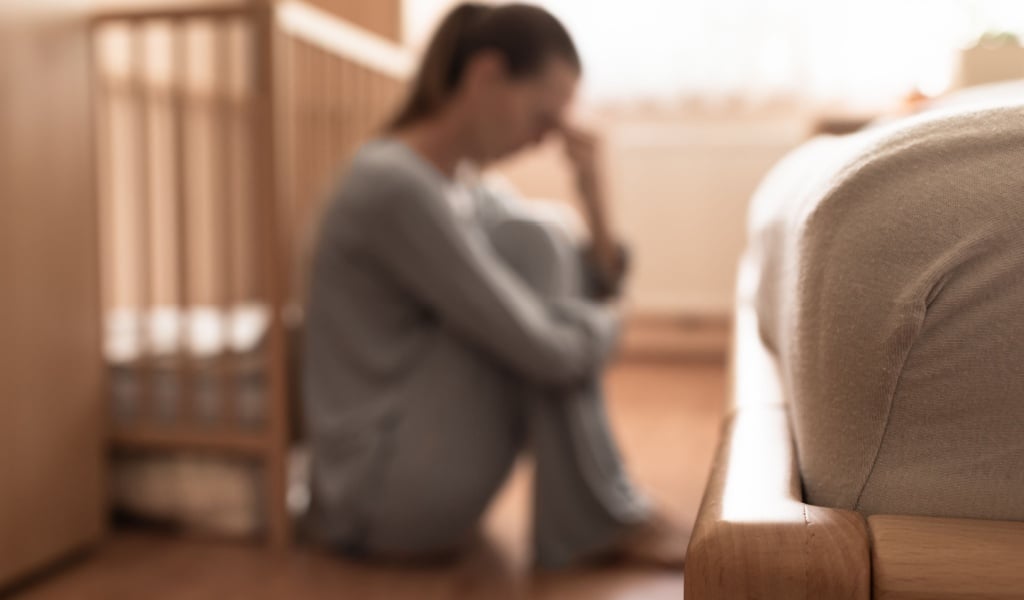Giving birth is a life-changing experience, and the days and weeks following it are bound to be an emotional whirlwind. It’s completely normal to feel unlike yourself right after giving birth, given that your body and life have just undergone some significant changes. The hormonal changes and a new shift in priorities bring emotional highs and lows. You may feel like you are on top of the world, and everything has come crashing down on you the very next minute.

At first glance, postpartum depression and baby blues are somewhat similar, but understanding the differences is critical to keeping your mental health at its best. Baby blues may develop a few days after giving birth, and it’s normal to feel sad and upset with yourself, those around you, and even your baby. However, these feelings will pass within a few days or weeks. It’s a temporary phase that often improves without requiring treatment or medication.
Postpartum depression, on the other hand, is a more severe and long-lasting condition. It’s something that only physicians and mental health practitioners can accurately diagnose because the symptoms are broad and can mimic symptoms similar to other conditions. Understanding the difference between postpartum depression and baby blues is critical because this will enable one to seek appropriate medical intervention before the condition progressively worsens.
If you suspect that someone you love is undergoing postpartum depression, here are some common warning signs to look out for.
Sudden Changes In Behavior
A shift in habits or personality is one of the most telling signs of postpartum depression. It’s common to notice unpredictable mood, behavior, and personality changes. New mothers with postpartum depression may cry excessively for extended periods for apparently no reason they can specify. They may also experience drastic mood swings where they appear calm one moment and highly irritable the next.
Overwhelming Sense Of Anxiety
New mothers with postpartum depression exhibit intense fear and worry so much that they are unable to perform their daily tasks. They lack focus and concentration and often forget things very quickly. Moreover, they can feel like they’re going crazy and don’t have any control over their thoughts.
Feeling Of Shame And Guilt
Motherhood brings its fair share of turbulent emotions, and mothers who are experiencing postpartum depression will express feelings of inadequacy or worthlessness. They will often complain about feeling hopeless, guilty, or shameless that they’re not good enough as a mother.
Unable To Make Decisions
All the emotional setbacks affect their decision-making abilities, making it all the more difficult to make simple decisions! Maybe the new mother is too tired to think straight—or perhaps she just doesn’t care anymore. The brain fog caused by the cyclone of hormones and emotions caused by postpartum depression can be debilitating. She will have difficulty deciding whether to get out of bed, change the baby’s diaper, shower, or take a quick walk.
Change In Sleeping And Eating Patterns
Naturally, one’s eating and sleeping habits change drastically after childbirth – after all, you’ve just been through one of the most drastic medical and life events ever. But if you notice a new mother who cannot rest even when the child is sleeping, or you find that she is sleeping all the time, this could be more than just a new sleeping pattern. Moreover, a change in appetite, whether it’s eating too little or overeating, could also be a sign of postpartum depression.

Difficulty Bonding With The Baby
Undoubtedly, the arrival of the new bundle of joy is what every new mother looks forward to at the end of the harrowing journey that is pregnancy and childbirth. Tellingly, losing interest in one’s baby is a sure sign of postpartum depression. If a new mother expresses that she doesn’t feel connected to her baby or if you notice that she disregards her newborn and is not interested in caring or bonding with the baby, it would be wise to talk her into visiting a doctor.
Thoughts Of Harming Oneself Or The Baby
Feeling suicidal or wanting to hurt the baby are advanced signs of postpartum depression or postpartum psychosis, which is a serious mental condition! If you understand that a new mother is feeling suicidal or has intrusive thoughts of harming her baby, you must call the doctor or the Suicide and Crisis hotline straight away.
Complaints About Physical Pains
Owing to the mental and emotional stress, postpartum depression can also make one experience physical symptoms. If you hear a new mum complaining of frequent headaches, chronic fatigue, loss of energy, muscle aches, or stomach pains, this could also point to postpartum depression.
Isolating From Family And Friends
New mothers who are undergoing postpartum depression often withdraw from their loved ones, including not wanting to be alone with the baby. If you find that she is pulling away or wanting to spend excessive time alone, it may be cause for concern.
Suffering From Panic Attacks
Feeling extremely anxious for seemingly no reason could be a warning sign of postpartum depression, and it could cause a new mother to experience panic attacks. Symptoms could include shortness of breath, rapid heartbeat, and tightening of the chest.
Final Thoughts
A lot of new mothers experience postpartum depression, and the level of severity depends. In general, postpartum depression is a spectrum of strong and long-lasting emotions that persist after having a baby. Of course, emotional changes like mood swings, crying spells, and sadness are common, but if they last for more than two weeks and these feelings grow so intense that they now interfere with a mother’s ability to take care of herself or her child, then it’s paramount to seek help.
Doctors can prescribe treatment options that vary on how severe the symptoms are, including anti-anxiety and antidepressant medication, behavior or talk therapy, support group interactions, or a referral to a mental health specialist.
With your support and help in watching out for warning signs of postpartum depression, you can ensure that a new mother you care for gets the proper treatment or therapy she needs to recover from her symptoms so she can cherish these special days of motherhood!



